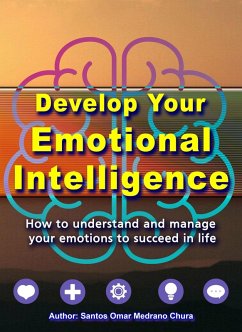The concept of emotional intelligence originated in the 90s and was popularized by psychologist and author Daniel Goleman in his book "Emotional Intelligence". Goleman argues that emotional intelligence is an important skill that can be developed and improved over time, and that it is a key predictor of success in life, both personally and professionally.
Emotional intelligence is divided into five key components: self-awareness, self-regulation, motivation, empathy, and social ability. Self-awareness refers to the ability to recognize and understand one's emotions. Self-regulation refers to the ability to control impulsive emotions and behaviors. Motivation refers to the ability to use emotions as motivation to achieve goals and objectives. Empathy refers to the ability to understand and feel the emotions of others. And social skill refers to the ability to interact with others effectively.
Emotional intelligence is a skill that can be learned and improved over time. Some ways to develop emotional intelligence include practicing meditation and mindfulness, establishing healthy and effective interpersonal relationships, and seeking feedback and constructive feedback from others.
Emotional intelligence is also important in the workplace. Leaders and managers who possess high emotional intelligence are able to establish effective relationships with their employees, resolve conflicts constructively, and motivate their teams to achieve goals and objectives. Employees with high emotional intelligence are also able to work effectively in teams, establish healthy and effective interpersonal relationships, and manage stress and pressure at work.
Dieser Download kann aus rechtlichen Gründen nur mit Rechnungsadresse in A, B, CY, CZ, D, DK, EW, E, FIN, F, GR, H, IRL, I, LT, L, LR, M, NL, PL, P, R, S, SLO, SK ausgeliefert werden.









